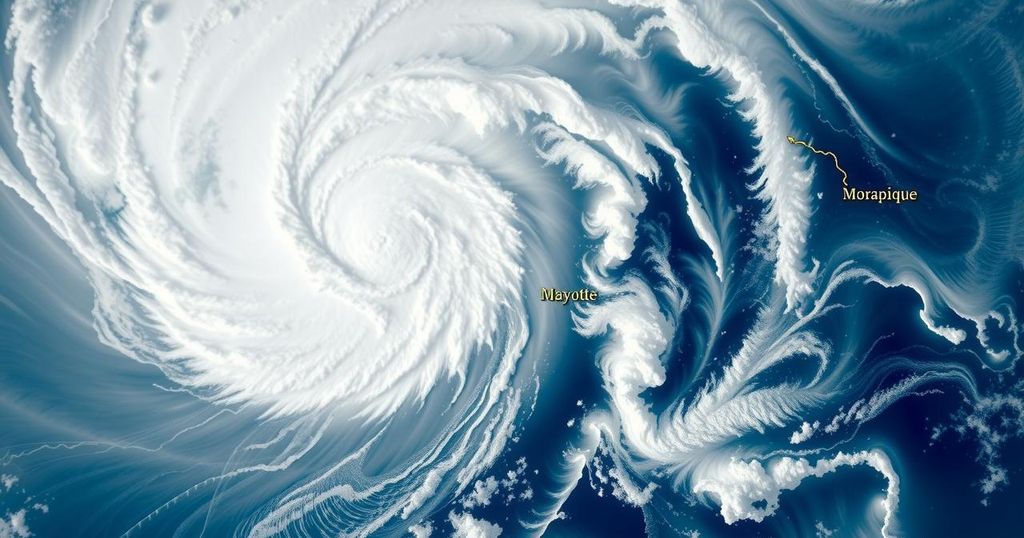Tropical Storm Dikeledi Threatens Mozambique After Impacting Mayotte and Madagascar

Tropical storm Dikeledi is moving towards Mozambique after causing three fatalities and flooding in Madagascar and Mayotte. Dikeledi weakened from a cyclone and continues to threaten Mayotte with severe weather. Precautions are being implemented as the region influences storm predictions for Mozambique, highlighting the increasing dangers of climate variability.
Tropical storm Dikeledi is headed towards Mozambique following its passage over Mayotte and Madagascar, where it left a tragic toll of three fatalities and widespread flooding. Initially forming as a cyclone in Madagascar, Dikeledi unleashed severe winds and rain before weakening to a tropical storm. In Mayotte, which is experiencing the aftermath of Cyclone Chido, a red alert remains in effect as heavy rains and winds continue, threatening further destruction in an already vulnerable region. Local authorities are advising caution as the storm approaches Mozambique, which is predicted to face deteriorating weather conditions due to the storm’s intensity.
Mayotte’s prefect, Francois-Xavier Bieuville, emphasized the importance of remaining vigilant, stating, “We still have extremely strong winds and rainfall that is just as strong.” Although Dikeledi spared Mayotte from casualties, it has exacerbated the damage from previous weather events, including Cyclone Chido, which caused significant destruction and loss of life. As the area is still within the rainy season, residents are anxious about future impacts as their capacity to recover from successive storms is tested.
The region encompassing Madagascar and Mayotte has become increasingly susceptible to tropical storms and cyclones, particularly during the annual cyclone season from November to March. The recent onslaught of Cyclone Chido, which left significant casualties and infrastructure damage in Mayotte, heightened the vulnerability of the territory. With current ocean temperatures around 30 degrees Celsius (86 degrees Fahrenheit), conditions are favorable for intense storm development, a change attributed to global warming trends that affect storm severity. This has raised concerns regarding the preparedness of local populations and the capacity of regional authorities to manage multiple weather events in quick succession.
In summary, tropical storm Dikeledi has left a devastating impact on Madagascar and Mayotte, intensifying the urgency for local governments to respond to the needs of affected communities. With predictions of further turmoil as Dikeledi approaches Mozambique, ongoing vigilance and response coordination will be critical in safeguarding lives and property. The combination of multiple storms in quick succession underscores the pressing need to address climate change and its implications for vulnerable regions.
Original Source: www.bryantimes.com








